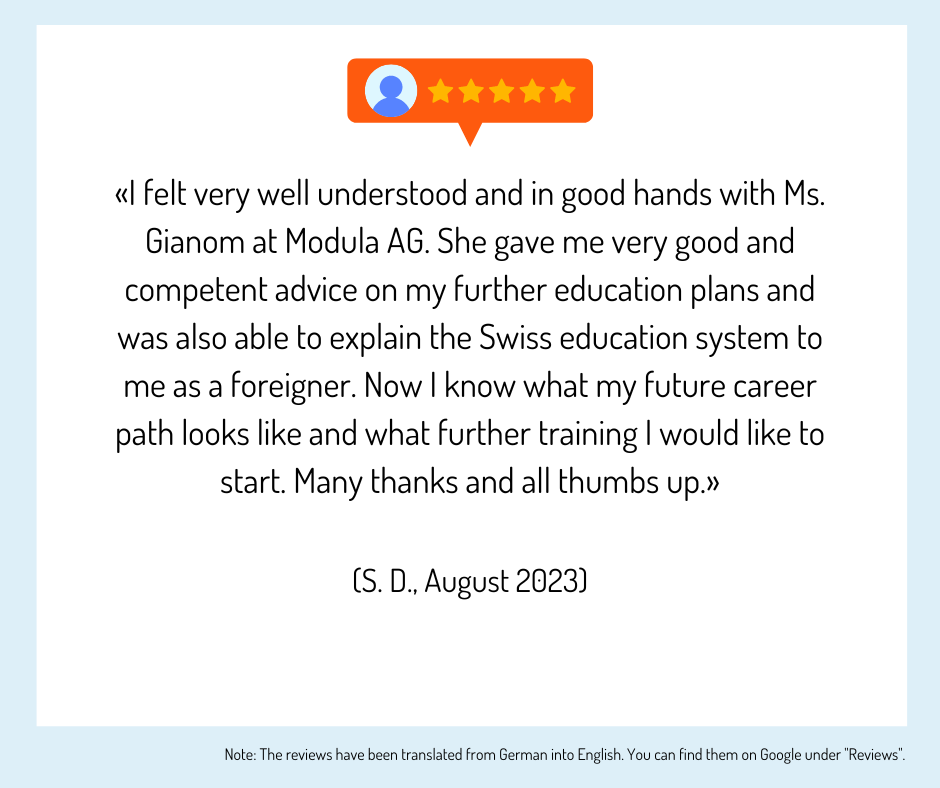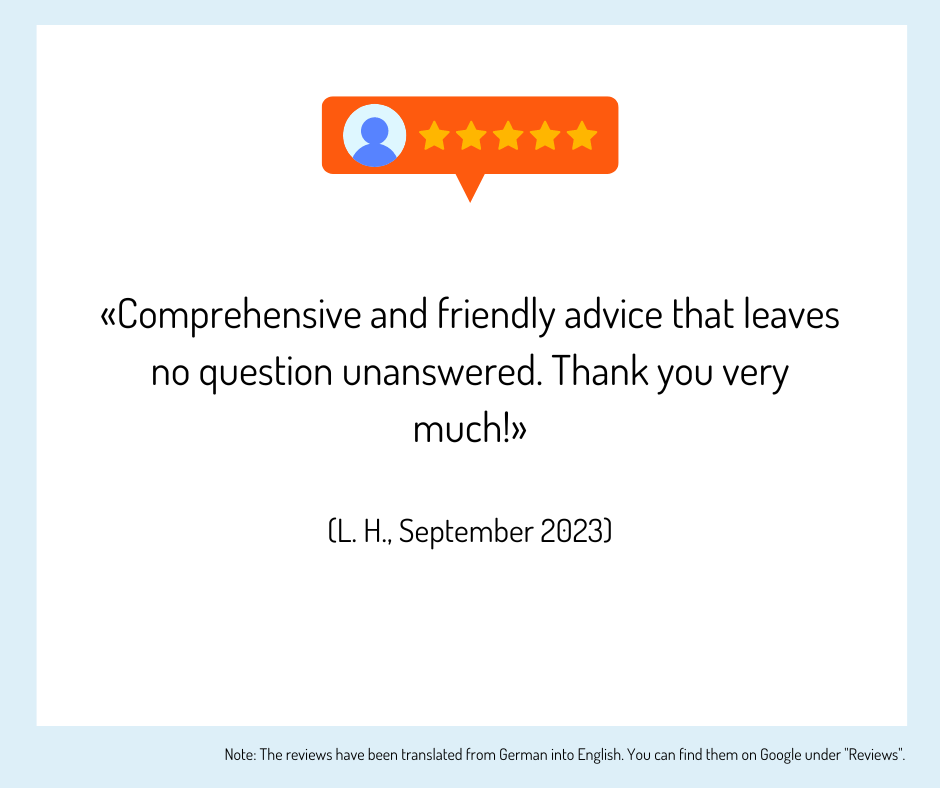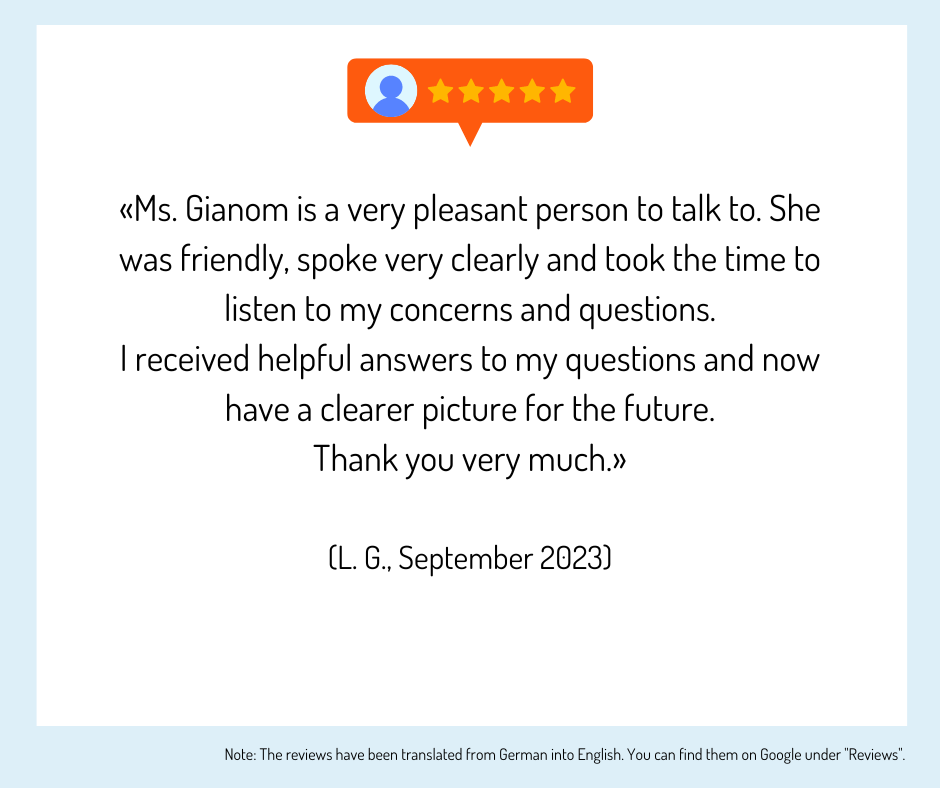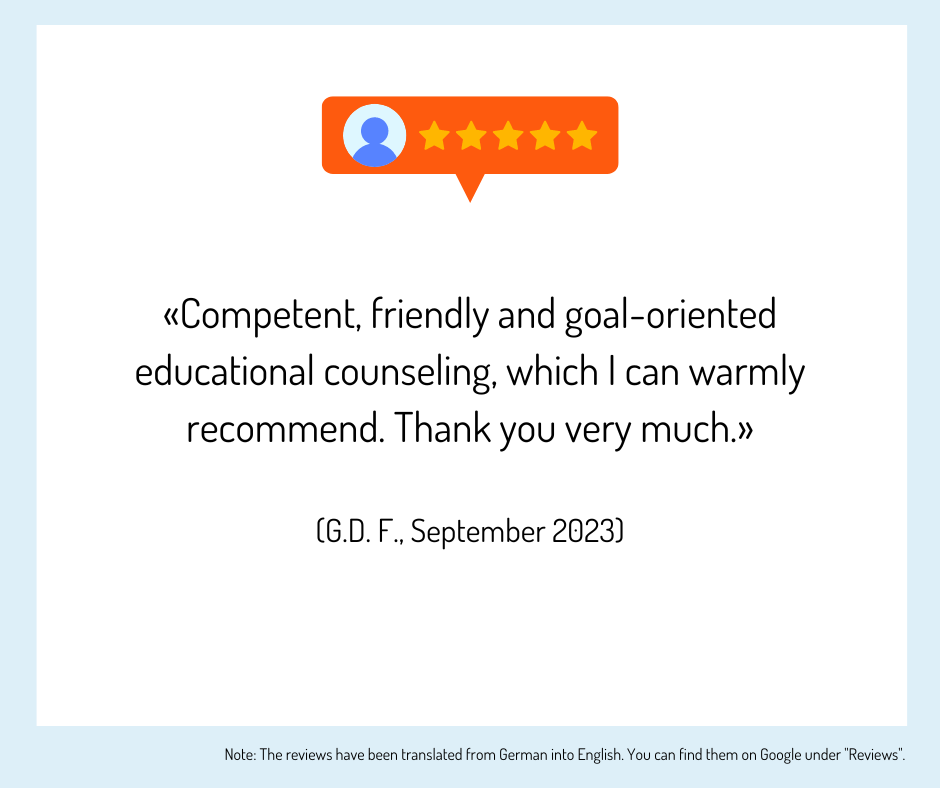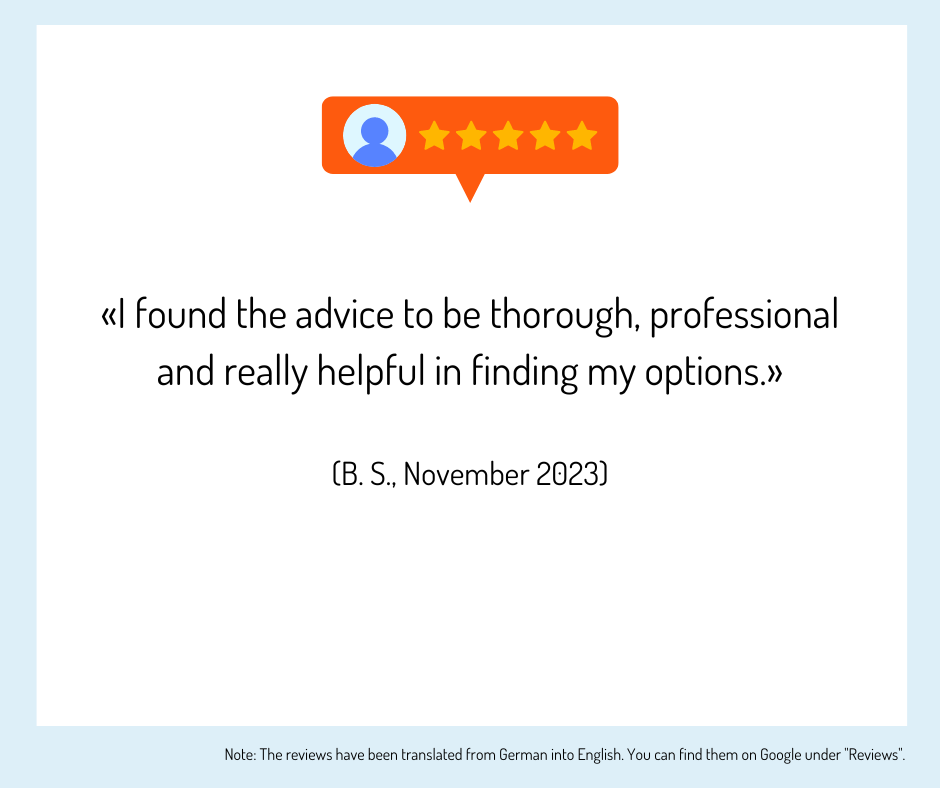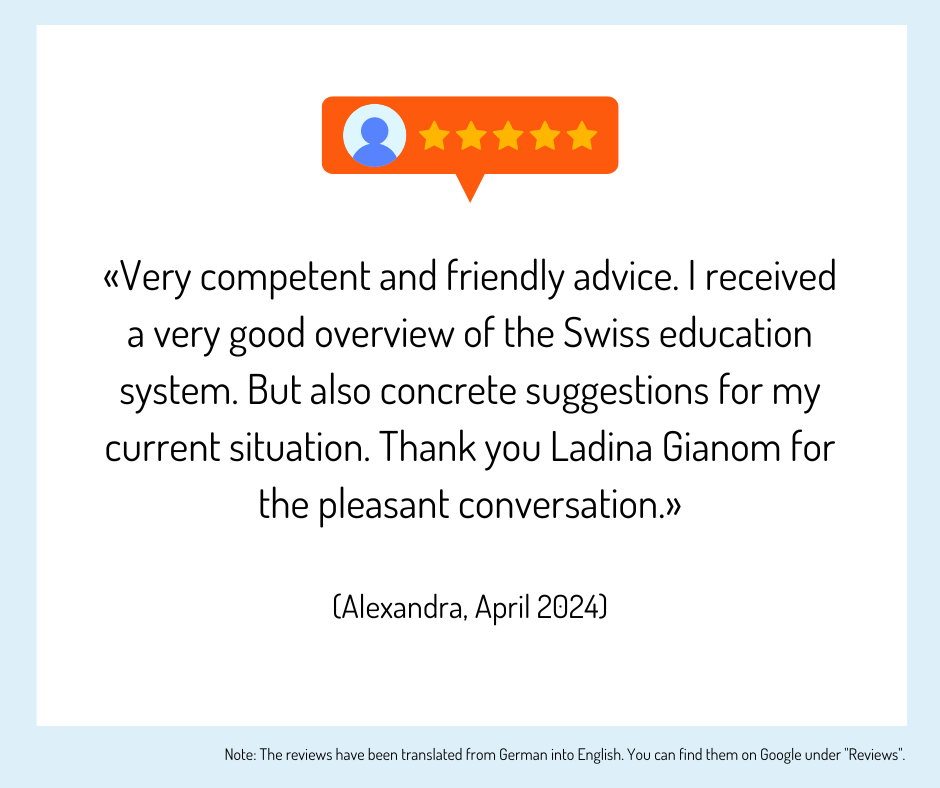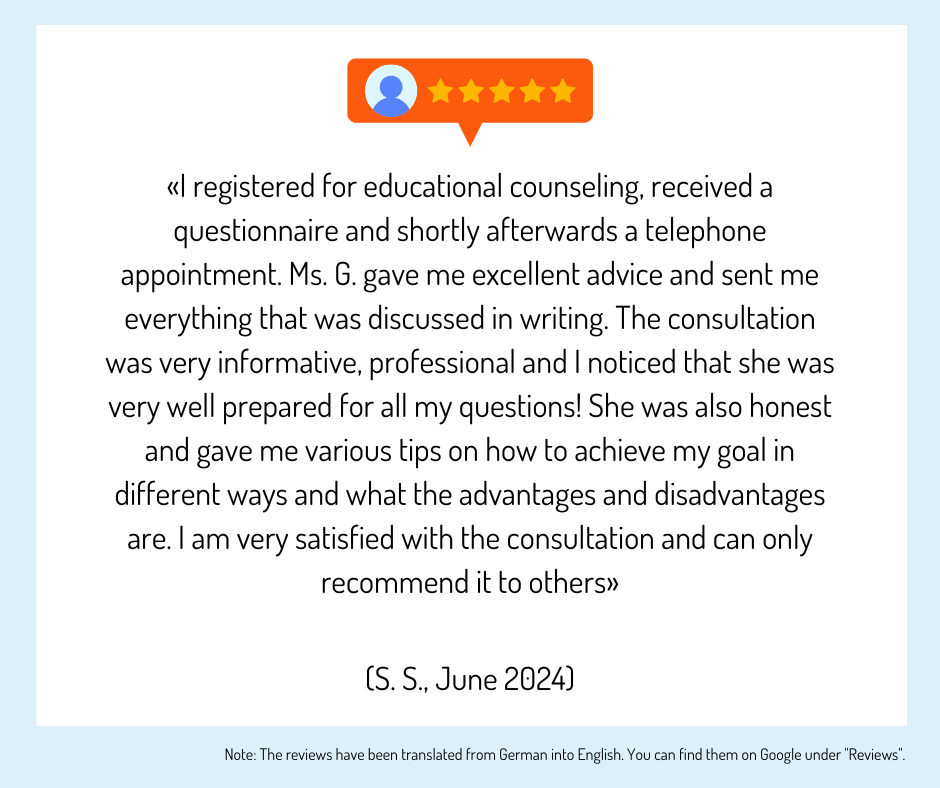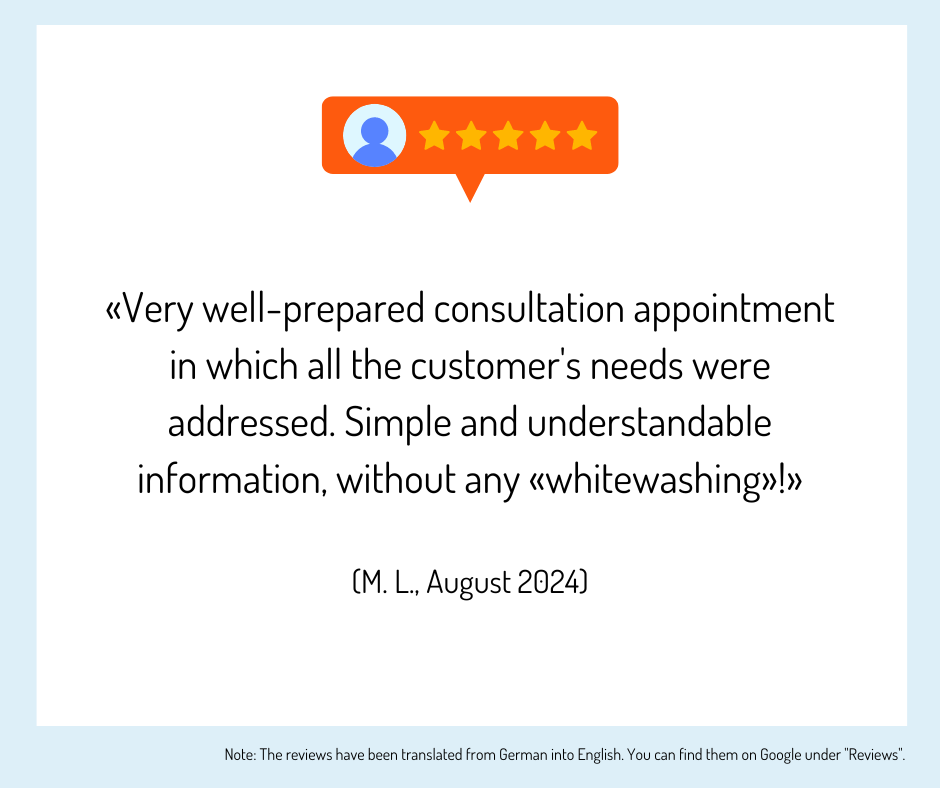Healthcare specialist (EFZ) (Brugg):
1 Provider
Receive free course information on Healthcare specialist: training, further training for healthcare specialists, educational offers and schools on the subject of care and health Brugg by e-mail immediately:
Sofort zur richtigen Weiterbildung
Education location / Brugg schools
Questions and answers
What are the learning areas in the healthcare assistant training program?
The following learning areas are important in healthcare assistant training:
- Implementation of professionalism and client-centeredness
- Care and support in general and in difficult situations
- Performing medical-technical procedures
- Promoting and maintaining health and hygiene
- Shaping everyday life
- Carry out housekeeping activities
- Carry out administrative and logistical tasks
Why train as a healthcare assistant?
Through your work as a Federal VET Diploma healthcare specialist, you will ensure that sick and elderly people are well cared for and feel comfortable. Training as a healthcare assistant provides you with the necessary knowledge to care for people who need help. You will learn how to support people with everyday tasks and help them with medical tasks.
How long does training as a healthcare specialist take?
Training as a healthcare specialist usually takes three years. In some cantons, a shortened version of two years is possible with the appropriate previous education and professional experience.
What is the FaGe training for adults?
The shortened healthcare assistant training for adults (FaGe E) is aimed at people who are at least 22 years old and have already gained two years of professional experience in the care and support sector. In contrast to the regular shortened training, the FaGe E is offered in a variant specially designed for the adult target group.
Healthcare assistant training: What subjects are taught in the Federal VET Diploma healthcare assistant basic training program?
During your training as a healthcare professional, you will learn and apply all the important professional basics in a home, clinic, hospital or other social and healthcare facility. At the vocational college, which takes place one or two days a week, you will receive in-depth theoretical training in the following areas:
- Dealing with patients and relatives
- Hygiene and safety
- Support and care
- Emergencies and crises
- Logistics
- Household
- Nutrition
- Medical technical procedures
- Work organization
- Everyday life
- Clothing and underwear
- Administration
- Prevention and resource conservation
Training as a healthcare assistant - What are possible alternatives?
Possible alternatives to training as a healthcare assistant are:
- Medical practice assistant (MPA) Federal VET Diploma
- Health and social care assistant (AGS) Federal VET Certificate
- Podiatrist Federal VET Diploma
- Federal VET Diploma care specialist
- Certified nursing specialist CHE
Healthcare assistant apprenticeship: What continuing, further training is possible for a Federal VET Diploma healthcare assistant?
There is a whole range of attractive further training opportunities for healthcare professionals, with courses offered by institutions and professional associations in the social and healthcare sector, as well as technical colleges. In addition, Federal Professional Examinations (AFPE) or Advanced Federal Professional Examination (AFPE) can be taken at a College of Higher Education or a course of study at a University of Applied Sciences can be started after the apprenticeship. Federal Diploma of Higher Education can be obtained with a Federal Professional Examination in the following areas, for example:
- Consultant for respiratory disabilities and tuberculosis
- Medical coder
- Transport paramedic
- Specialist in neurophysiological diagnostics
- Medical masseur/masseuse
What are the main tasks for a healthcare professional in medical care and administration?
The most important tasks for the health professional in medical care and administration are:
- Measure fever, blood pressure and pulse
- Take blood and urine samples and send them to the laboratory
- Preparing medication and administering it as instructed by the nursing staff, giving injections
- Applying infusions and artificial nutrition
- Change dressings and treat wounds
- know and apply hygiene and safety regulations, dispose of consumables in a professional and environmentally friendly manner, clean and disinfect instruments
- support prevention projects such as vaccination campaigns
- Create documents for the admission, transfer and discharge of patients
- receive people and show them the premises
- plan external appointments such as physiotherapy or visits to the doctor and accompany people there if necessary
- do administrative work on the computer, check and order materials, medicines and food, take part in meetings
What is different in the FaGe training for adults?
The vocational schools offer separate classes in the vocational training for adults, in which learning among adults is encouraged and their needs can be specifically addressed. The content is covered somewhat more quickly than in regular training. VET E students acquire the same skills as VET E students on the regular course. The qualification procedure is also identical. The only difference is that fewer partial grades are awarded for the practical skills assessments.
What tasks do you have in care and support after training as a healthcare specialist?
After training as a healthcare specialist, you have the following tasks in care and support in everyday life:
- Supporting people with hygiene and personal care (shower, bath, toilet), helping with dressing and undressing, shaving and combing, promoting the independence of the people cared for and building a relationship of trust.
- Washing laundry and clothes, changing bed linen, carrying out housekeeping tasks such as washing up and cleaning
- help with the intake of meals, ensure a balanced diet and adherence to diets
- assist persons with walking disabilities in using a wheelchair or walking aid, lift and transfer bedridden persons
- Ensure a regular daily routine, encourage activities
- observe and document the state of health and pass on any changes to medical personnel, raise the alarm in an emergency and provide first aid
- Accompanying the dying
What is the shortened FaGe training?
The shortened healthcare assistant training program is an opportunity to obtain the Federal VET Diploma in healthcare (FaGe) as an adult. Practical experience already gained in the professional field of nursing and care is credited towards the training period. The training period is shortened by one year, so that the training takes two years in total.
Teaching healthcare assistants: What do healthcare assistants need?
Healthcare professionals should have the following personal requirements for a healthcare assistant apprenticeship:
- Sociability
- Team and communication skills, good manners
- Patience and respect
- Empathy and helpfulness
- Good powers of observation, quick reactions
- Careful and precise way of working
- Sense of responsibility
- Organizational talent
- Service awareness
- Mental resilience
- good physical condition
- Flexibility (irregular working hours)
How does the FaGe adult apprenticeship work?
In the case of apprenticeships for adults, the apprenticeship relationship is concluded with an apprenticeship contract and the companies are obliged to provide training support. The minimum degree of employment is 85% (60% company, 25% school lessons and inter-company courses). Thanks to the flexibility to adapt the level of employment to personal circumstances, this training option also enables people with family or other dual responsibilities to obtain a VET diploma. The general education classes can be attended before or during the training, which allows additional flexibility in the choice of workload.
Healthcare specialist - what are the skills?
The competencies as a healthcare specialist are
- Carry out care measures independently and competently
- to promote the physical, social and mental well-being of people of all ages and actively shape their everyday lives
- to maintain a respectful professional relationship with clients in everyday working life and to act in accordance with their needs
- work closely with other people
- Teamwork and communication play an important role in everyday working life
What are the working conditions like as a healthcare professional?
As a healthcare specialist, you will work in various healthcare and social institutions, for example in hospitals, psychiatric clinics, rehabilitation centers, retirement and nursing homes, homes for the disabled or in Spitex. Depending on the place of work, you can expect irregular working hours, night and weekend shifts or part-time work. Prospects on the job market are good and qualified professionals in the nursing and care sector are in demand.
Apprenticeship as a healthcare assistant: what does a Federal VET Diploma healthcare assistant do?
Healthcare professionals are employed in a wide variety of social and healthcare institutions, such as retirement homes, psychiatric clinics, homes for the disabled, Spitex and rehabilitation centers. They can be found wherever people in need of help need to be looked after and cared for who, for a variety of reasons, are no longer able to cope with everyday life on their own. After completing their apprenticeship as a healthcare assistant, healthcare assistants are responsible for the daily cleaning of patients' bodies as well as serving or administering meals. They are actively involved in leisure activities such as arts and crafts, going for walks or reading aloud.
Depending on their position, healthcare assistants may also be responsible for household tasks such as minor cooking, cleaning or washing after their apprenticeship as a healthcare assistant. They also deal with medical technology. Under the instruction of specialists, they administer medication, give injections, measure blood pressure, change bandages and take blood samples.
What are the requirements for the FaGe catch-up training?
The prerequisites for the Vocational Clerical Assistant Catch-up Training (in accordance with Art. 32 BBV) are:
- 5 years of professional experience up to the time of the final examination, of which at least 3 years in the field of nursing and care
- Good written and spoken German (vocational training completed in Switzerland - Federal Diploma of Vocational Education and Training or Federal Certificate of Vocational Education and Training - or at least German level B1. Otherwise, a German test must be taken from the 2022 degree course).
- Admission to the qualification procedure by the responsible canton
- Written consent of the employer
- General education course ABU: If there is no dispensation due to previous education, the ABU must be completed before or during the apprenticeship.
- 2-year training
- Qualification: Federal Diploma of Vocational Education and Training (Federal VET Diploma)
Erfahrungen, Bewertungen und Meinungen zur Ausbildung / Weiterbildung
Haven't found the right training or further education yet? Benefit from educational advice now!
Further training is not only important in order to maintain or increase professional attractiveness, investing in training or further training is still the most efficient way to increase the chances of a pay rise.
The Swiss education system offers a wide range of individual training and further education opportunities - depending on your personal level of education, professional experience and educational goals.
Choosing the right educational offer is not easy for many prospective students.
Which training and further education is the right one for my path?
Our education advisory team will guide you through the "education jungle", providing specific input and relevant background information to help you choose the right offer.
Your advantages:
You will receive
- Suggestions for suitable courses, seminars or training programs based on the information you provide in the questionnaire
- An overview of the different levels and types of education
- Information about the Swiss education system
We offer our educational counseling in the following languages on request: French, Italian, English
Register now and concretize your training plans.
